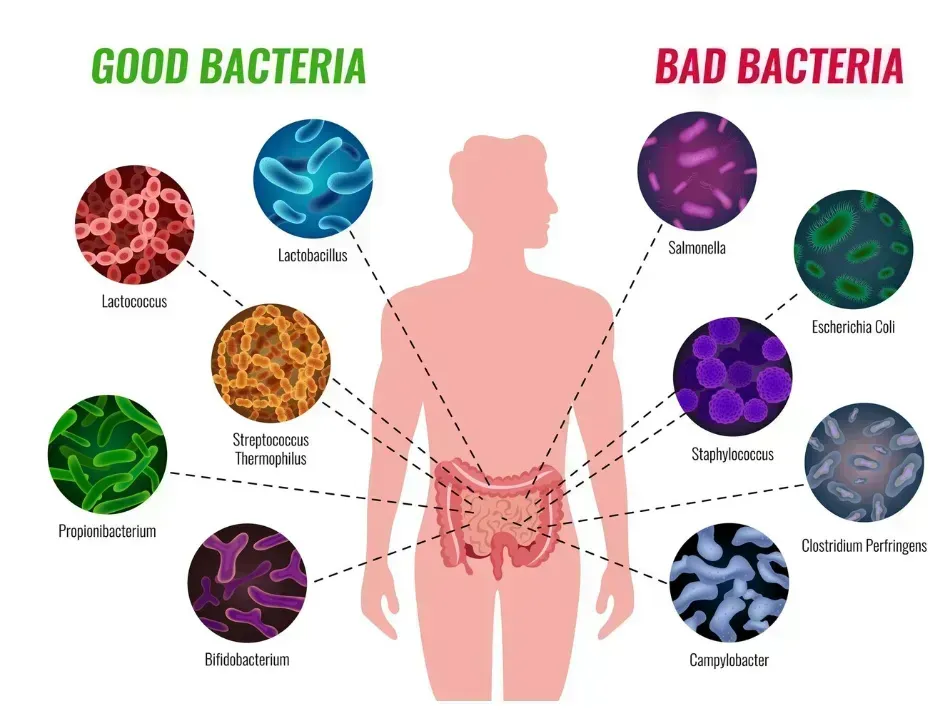

Bad Gut Bacteria vs. Good Gut Bacteria
Medically Reviewed by
Dr Guru N Reddy
on
January 08, 2024 | Written by
DLDC Editorial Team


The Good, the Bad, and the Gut: Unraveling the Microbial World
Digestive Allies: Beneficial bacteria aid in breaking down complex carbohydrates, making it easier for the body to absorb essential nutrients.
Immune Support: Good bacteria contribute to the proper functioning of the immune system, acting as a shield against harmful pathogens.
Mood Modulators: Some strains of beneficial bacteria are linked to the production of neurotransmitters, influencing mood and mental well-being.
Inflammation Instigators: Harmful bacteria can trigger inflammation in the gut, potentially leading to various digestive issues and chronic conditions.
Nutrient Thieves: Bad bacteria may compete for nutrients, potentially depriving the body of essential elements.
Toxin Producers: Some harmful bacteria release toxins that can have detrimental effects on the gut lining and overall health.
1. How do I know if I have an imbalance in my gut bacteria?
2. Can diet influence gut bacteria?
3. How do antibiotics affect gut bacteria?
4. Are probiotics necessary for a healthy gut?
5. Can stress impact gut bacteria?
6. Are all bacteria in the gut harmful?
7. How does gut health influence weight?
8. Can I improve my gut health naturally?
9. How does age affect gut bacteria?
10. Should I take prebiotics along with probiotics?
Achieving a harmonious balance between good and bad gut bacteria is essential for overall well-being. By making mindful lifestyle choices, including a nutritious diet and stress management, you can foster an environment in which the good bacteria thrive, creating a foundation for optimal health. Consult with a healthcare professional for personalized advice on maintaining a healthy gut microbiota. After all, a healthy gut is a cornerstone for a healthy life.